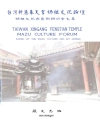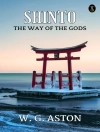This volume brings together contributions from the 2022 conference of the European Society for the Study of Science and Theology, held in Ålesund, Norway, to address the many urgent questions raised by the concept of global sustainability. Scholars from the fields of philosophy, theology and the sciences offer a variety of perspectives on global sustainability, and on how the need for it can best be effected and sustained. The material assembled here – covering the roots of the present ecological crisis, as well as means for addressing it from ecological, societal, and both Christian and Islamic theological perspectives – inform discussions of these questions both within the academy and in wider public fora. This text appeals to students and researchers in the field.
Table des matières
Is Sustainability Utopian? Complex challenges and concrete action principles.- Justifying Sustainability: scientific necessity, sacred duty, or political process?.- What, Exactly, Needs to be Sustained amidst a Changing Climate?.- How Can Theology Contribute to our Sustainability Goals?.- Environmentalism, Sustainability, and the Meaning of Technology.- Desacralising Nature through a Deflationary Concept of Causation, and the Search for Alternatives.- Entrusted with Creation: God’s therapeutic trust in humanity for creation care.- The Theological Preconditions of a Sustainable World View.- The Dignity of the Human Person through the Theology of Continuous Creation.- Flourishing – Now and for the Ages to Come: Discerning ethical wisdom in the book of nature.- Humanizing the Biosphere’s Internal Logic.- The Sacred in Nature Conservation: A European Perspective.- Appraising Nature: A pan-experiential approach to nature’s agency.- Ecological Accompaniment: From connectivity to closeness in an age of loneliness.- The Paradox of Sustainable Prisons: How liberation theology might contribute to the question of environmentally-friendly prisons.- Birds, Lilies and the Gorilla: An eco-theological reading of Jesus’s teachings in conversation with Daniel Quinn.- New Opportunities for Church Action Towards Sustainability in the Light of Alternative Theological Narratives for Science.- Human Sustainability in the Age of Technology: A theological proposal on technomoral human futures.- Eastern Orthodoxy and Glocal Sustainability: Towards shaping a modern Church organizational culture.- Ecolibrium: The Quranic paradigm for global sustainability.
A propos de l’auteur
Michael Fuller has taught science and theology at the University of Edinburgh since 1998. He is the author of a monograph and numerous articles and book chapters dealing with the interface of science and religion, and he has edited numerous books relating to this subject. He has also published papers on theology and literature, and theology and music. He is a former Chair of the UK Science and Religion Forum, Vice-President for Publications of the European Society for the Study of Science and Theology, and a Fellow of the International Society for Science and Religion. He is an Honorary Canon of St Mary’s Cathedral, Edinburgh. His research interests include ethical issues raised by new and emerging sciences.
Mark Harris is Andreos Idreos Professor of Science and Religion at the University of Oxford, and serves as President of the European Society for the Study of Science and Theology (ESSSAT). He is also a Fellow of the International Society for Science and Religion. His research interests include projects in condensed-matter physics (in the physics of frustrated magnetic materials), and in theological studies of ‘nature’. His publications include articles in physics and in the cross-over between biblical studies and the natural sciences. He recently co-edited the Oxford Handbook of the Bible and Ecology (2022).
Dr Joanna Leidenhag is Lecturer in Theology and Liberal Arts at the University of Leeds. Previously, she was Lecturer in Science-Engaged Theology at the University of St Andrews, which resulted in the book Science-Engaged Theology with Cambridge University Press (2023). Her first monograph, Minding Creation: Theological Panpsychism and the Doctrine of Creation (2021) intervened in a number of debates related to science-and-religion including the existence of the soul, emergence theory, divine action, and the environmental crisis.
Anne L.C. Runehov earned her Associate Professor and Dr. Theol. Philosophy of Religion degrees from Uppsala University. She is member of the board of The Structure of Creditions, University of Graz, Austria, and a member of the board of ESSSAT. Monographs are Sacred or Neural? (2007), and The Human Being, the World and God (2015). She is Ei C of the Encyclopedia of Sciences and Religions, (2013). She is co-editor for the ESSSAT book series Issues in Science and Religion. She received the 2006 ESSSAT research prize.












